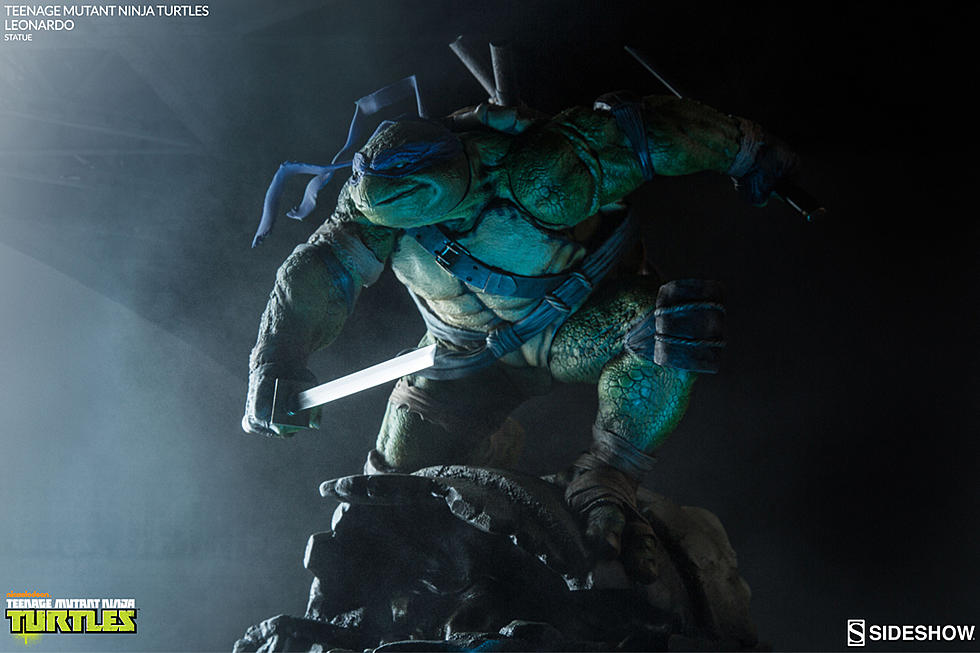
The Uncertainty Of Change: A Closer Look At The ‘Legend of Korra’ Book 3 Finale
I re-watched "Sozin's Comet" last night, in the wake of The Legend of Korra's third season finale. It was still wonderful, still grand and gorgeous and heavy with emotion. But it felt different this time. It felt...funnier.
And really, it is. Avatar: The Last Airbender's four-episode finale starts with a beach party. Sokka cracks jokes as he scrambles across a crumbling airship. The last spoken line is a blind joke. It is clear to me, in a way that it wasn't when I first watched it, that these characters are young teens. Young teens dealing with genocidal dictatorships, Orwellian city-states and the general mayhem of war, absolutely, but their age lends the whole affair a constant, underlying levity. The adults that exist are kept at arm's length from the action—present, but unmistakably marked as “grown-ups,” and thus distant. Youth, and all its connotations of hope and humor, are the engine of the show.
Legend of Korra, in contrast, is downright grim. The central team all falls between 17 and 20 years old, and 50-somethings like Lin and Tenzin are as present in the story as they are. Their relationships feel less timid, less blushy. Characters like Mako have solid careers and murky pasts involving gang membership. Azula was a terrifying and tragic villain, but baddies like Zaheer (and Amon, and Unalaq) wield philosophical weight alongside their grinning evil.
In Avatar, Jet's death was “really unclear”—in Korra, the Earth Queen is asphyxiated on-screen in the name of Zaheer's anarcho-primitivist ideals. But all of this is window-dressing compared to the final frame of "Venom of the Red Lotus." They might have showed us a cheery Korra, physically weak but smiling in spite of it, shedding a happy tear at Jinora's ascendancy to Master Airbender. That would have been very comfortably within the realm of cartoon emotion physics. Instead, they showed us a young woman utterly drained, and physically incapacitated. Only when directly acknowledged by Tenzin did Korra's face shift from morose. The final frame is a tear trailing down her unsmiling face. They absolutely did not have to go with this ending, but they did. They very deliberately chose to end this season—this inventive, clever, incredibly engaging season—on the most downbeat note they could muster. They chose uncertainty.
Symbolically, this moment solidifies the mood of this season, and likely the next. The Red Lotus might have been the bad guys, but they were channeling a societal unrest that will not dissipate as issues of benders vs. nonbenders did at the end of the first season. Few adhere to their strict ideals, but people like Su Yin, rolling her eyes at the Earth Queen's decadent antics, are not hard to find across the Avatar landscape. We were not shown a Ba Sing Se in terror as Ghazan brought its walls down—we saw people cheering the destruction of a cruel and outdated way of life.
I watched Legend of Korra with a friend of mine who studies 20th century history, and she remarked, after "Long Live The Queen," that she was reminded of the assassination of Archduke Franz Ferdinand. "Change" was the name of this season, and at first, I thought this referred to the uniting of the spirit and physical worlds. In reality, this was only part of it. The world that Aang and company explored is disappearing as commoners learn to lavabend and liberate swollen royal coffers. Where does this leave the Avatar—the bringer of balance and emissary of peace?
I don't think Korra knows, and I think that—on top of heavy metal poisoning—is what's bringing her to tears in that final frame. With the spirit world accessible to anyone, she is no longer the bridge between worlds. With the air nomads acting as beacons of harmony, led by precocious Jinora, she is no longer the sole international mediator. She brought the Red Lotus down, but only at tremendous personal cost, and only with the help of dozens of people. She did not quell the unrest from which they sprang—and she can't. She brought suffering upon those she loves. And now she's in a wheelchair. She needs Asami to do her hair and Lin to help her up a flight of stairs. For Korra—so athletic, so passionate, so independent—this cannot feel like a victory.
Korra's central struggle has concerned the inappropriately massive role her Avatar-ness plays in her identity. Unlike Aang, she has always loved being special and revels in displays of talent and skill, to the point where instability in her role as the Avatar threatens to destabilize her sense of self. I believe, as the AV Club theorized, that she contemplated suicide when robbed of her bending in the first season finale. She's made some strides in accepting help and being open to change, but Korra has always seen herself as the sum of her skills—and suddenly, they've been torn from her.
This time, though, Aang cannot show up to give her back her bending and unlock the Avatar state, and she cannot project her spirit to kaiju-brawl in the Republic City harbor. She's going to have to fight her way out of this one in an entirely different sense—she will have to create a Korra who is not entirely defined by her biceps. And that means creating a new role for the Avatar.
I know we all love to complain about the first two seasons of Korra. But I'm starting to think that it's been aiming at something more ambitious than any of us ever imagined. As Korra hallucinates in "Venom of the Red Lotus," she is haunted by the faces of her former adversaries, who taunt her as unnecessary. Amon tells her the world doesn't need her anymore. Unalaq sneers that that the time of the Avatar is over. Vaatu lords his power over darkness and discord. Then, in chorus, they urge her to “let go.”
This is a solid summation of the series so far: revolutionaries have threatened the foundations of power and the spirit world has become a far more sinister and present place, but throughout all of it, major villains have aimed to destroy the Avatar as an institution. With this season explicitly attacking it on philosophical grounds, I suspect that this might be the ultimate point of Legend of Korra: deconstructing the Avatar role itself.
Because really, what does the Avatar offer an increasingly self-sufficient and complex world? Even when we consider someone other than Korra embodying the role? Anyone can commune with the spirits, and international politics are too complicated to be solved by a single excitable teenager. Increasingly, the only constant in Korra's world is change.
There is potential there. I don't believe the series will end with Korra renouncing the title entirely. But she will need to radically reimagine her responsibilities and a path for her future lives. In that way, her story will truly become the legend of Korra: the young woman who united the spirit and physical worlds, revived the Air Nomads, broke with her past lives, and became a new sort of leader for a new sort of world. If this is indeed the route the creators are taking, Korra will become a critique of the original series's many assumptions about power, balance, and righteousness—and yet it will also be a celebration and affirmation of its essential notions of goodness, freedom, and peace.
Korra has been an imperfect show. But Korra's individual journey of self-discovery and growth has been a strong, courageous portrayal of a character who grows more interesting with each episode. Creators Bryan Konietzko, Michael Dante DiMartino, and their team of writers have never shied away from giving Korra disruptive character flaws and serious obstacles to overcome, unlike many who load heroines with acceptable peccadilloes like shyness or clumsiness. Korra is brash and impulsive and recklessly independent. Much of the online chatter over season two was made up of fans (foolishly) bemoaning her actions as ridiculous and frustrating. Of course they were. She's a 17-year-old god-in-training whose only consistent social interaction has come from her polar bear dog.
And she's learned—shakily, sure, but she's learned. She's grown more patient, more thoughtful, and ultimately, braver. Korra of the first season would not have laid down her life for the airbenders the way she did last night. She would not have put on the brave face needed to endure Jinora's ceremony. She's becoming a wise, considerate leader. The creative team might have stopped there. The fact that they aren't is a testimony to their confidence and the promise of the fourth, and final, installment of Korra. If their ambitions pan out the way I predict they will, they have built a fine heroine to anchor them and give their musings poignancy.
"Change" was not perfect. As much as I loved Asami and Korra's friendship, I'm still not sure what it is that binds them together—largely due to the conspicuous, if well-coiffed void that is Asami's personality. She's nice, and friendly, and pretty, and rich, and that's about it.
This speaks to my larger problem with Korra, and the thing I miss most about the original series: the lack of filler. Back in the days, fans spent a lot of time complaining about Avatar episodes like "Bitter Work" and "Nightmares and Daydreams," wherein the show indulged in plot-adjacent stories like “Zuko tries lightningbending” and “Aang can't sleep.” And yeah, some of them were ridiculous. But their presence—enabled by longer seasons and a series-spanning story arc Korra does not have—let the characters settle into themselves more and make connections that, while not strictly plot-important, gave the story an emotional fullness that Korra sometimes lacks.
In Avatar, Sokka had time to confide in Toph that he could no longer remember what his mother looked like. The show could devote 22 minutes to the villainous Fire Nation kids' spring break antics. Sometimes we had to endure eye-rollers like "The Great Divide," sure, but sometimes we got "The Tales of Ba Sing Se."
Korra is able to maintain a certain tension and energy that Avatar could not—but sometimes, I think the cost was too high. Korra's cast is multifaceted, but the show can never play around with character pairings or structure. It will never have an equivalent to "Little Soldier Boy," or even the finale's duel between Zuko and Azula, which, though largely wordless, brought two seasons' worth of development to a resonant end. This season was sharp and twisty and I yelled at the screen a lot, but really? I want to know more about how Mako feels when he confronts homeless kids and sees himself in their faces. I want to see Asami visit her father in jail. I want to meet Zuko's daughter. I want to love these characters, but the show makes it difficult.
I hope Korra is able to slow down next season for these reasons. I doubt it will, but I hope, because I think that taking some time to mess around with its already vibrant cast would take it from great to classic. Regardless, this third season was a furiously fun ride from start to finish, and the perfect rebuttal to those who write the show off entirely. Its ambition is impressive on its own, but in sticking the landing it has introduced the possibility of truly innovative storytelling in its fourth season. I dread the end of Korra's story—but I will be impatient for it until it arrives.
More From ComicsAlliance

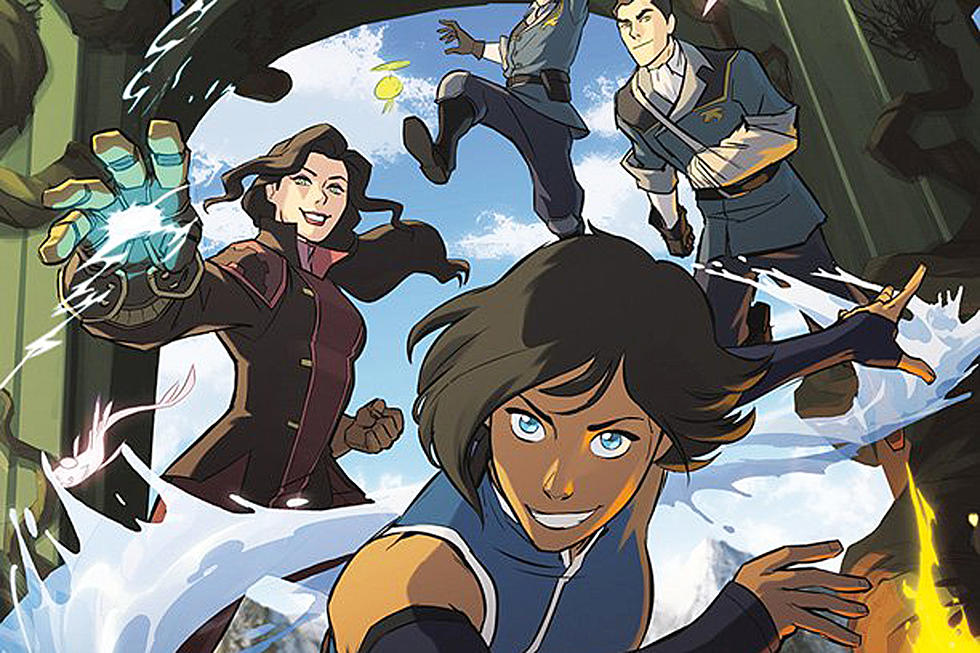
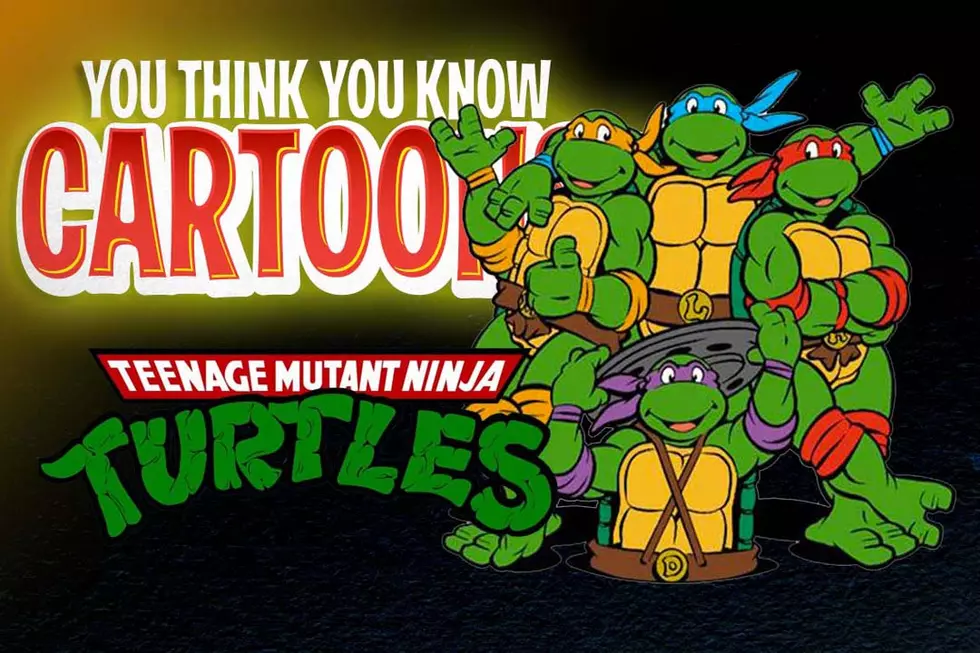


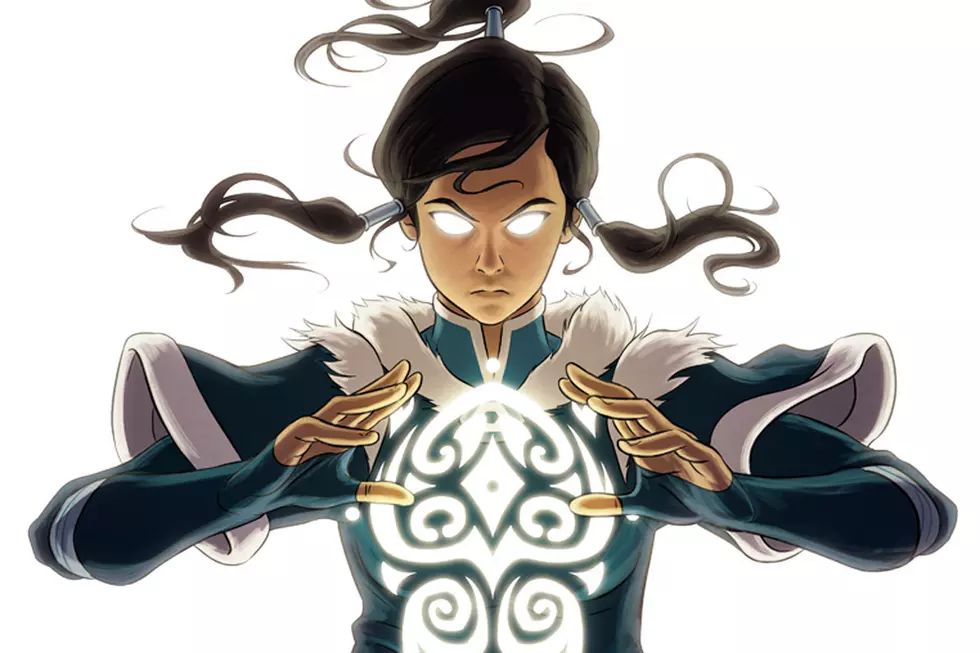
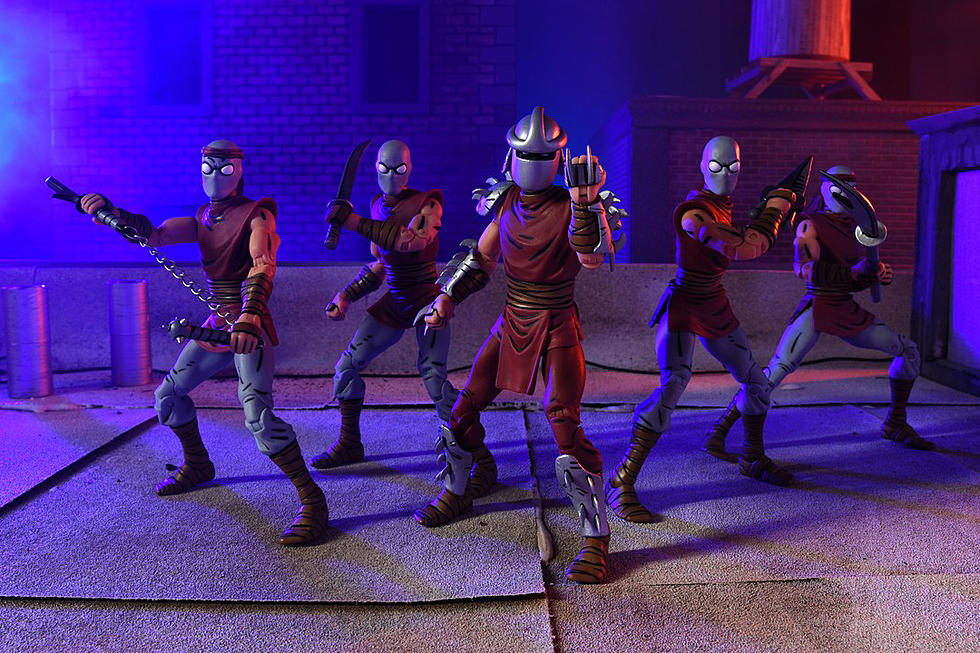
![The Dream of the ’90s Arcade is Alive With NECA’s SDCC Teenage Mutant Ninja Turtles Set [Review]](http://townsquare.media/site/622/files/2016/08/IMG_0517.jpg?w=980&q=75)
